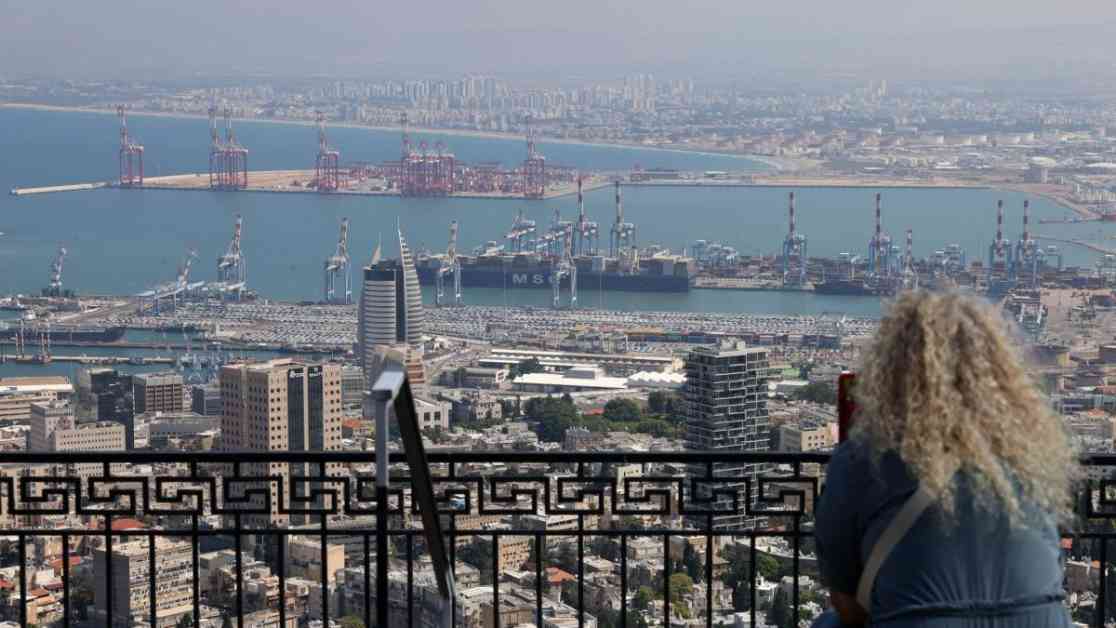Israeli Perspectives on the Use of Nuclear Weapons
As tensions between Israel and Hezbollah continue to escalate, Israeli perspectives on the use of nuclear weapons have come into question. While the Israeli government has expressed its commitment to striking Hezbollah with full force, the idea of using nuclear weapons is met with caution and skepticism by many within the country.
Prime Minister Benjamin Netanyahu’s vow to continue military action against Hezbollah has been met with support from a majority of Israelis. Polling data from the Israel Democracy Institute revealed that 67 percent of respondents believed that Israel should intensify its response against Hezbollah. This sentiment was echoed by Jewish respondents, with 47 percent supporting a deep offensive against Lebanese infrastructure and 27 percent advocating for an intensified response that avoids targeting infrastructure.
Despite the growing rhetoric of military action, the idea of using nuclear weapons is not taken lightly in Israel. Nevo Spiegel, a research fellow at the left-leaning think-tank Molad, emphasized that any suggestion of nuclear activity is met with a “minimal grain of seriousness” within the country. While there may be an appetite for an aerial campaign, the prospect of a ground invasion is viewed as a risky and dangerous move by many.
Voices from the Ground
Residents of Israeli cities like Ra’anana have been directly impacted by the conflict with Hezbollah. Malcolm Gafson, a resident of Ra’anana, highlighted the strong consensus in Israel for an intensive military response to Hezbollah. While some believe that boots on the ground may be necessary, the primary goal for many Israelis is to ensure the safety and security of their communities.
Sarit Zehavi, president of Alma, a research center focused on Israel’s security, emphasized the importance of diplomatic efforts in resolving the conflict. Despite the desire for a diplomatic solution, Zehavi stressed that Israel cannot afford to simply cease fire and expect Hezbollah to comply with its demands. The international community’s role in enabling Israel to achieve its military objectives was also a point of contention for Zehavi.
The Implications of Nuclear Weapons
The discussion around the use of nuclear weapons in the context of the Israel-Hezbollah conflict has raised concerns both domestically and internationally. While some voices within Israel have suggested the possibility of using nuclear weapons as a means to end the war, such rhetoric has been met with criticism and disbelief.
US Senator Lindsey Graham’s comments advocating for any means necessary to end the conflict, including the use of nuclear weapons, sparked controversy and backlash. Similarly, Israeli Heritage Minister Amihai Eliyahu’s remarks about the possibility of dropping a nuclear bomb on the Gaza Strip were swiftly condemned by Prime Minister Benjamin Netanyahu.
The Israel Defence Forces have maintained that their operations adhere to the highest standards of international law to minimize harm to civilians. Despite the escalating tensions and the potential for a ground invasion, the use of nuclear weapons remains a contentious and unlikely option for Israel in its conflict with Hezbollah.
In conclusion, the use of nuclear weapons in the Israel-Hezbollah conflict remains a topic of debate and controversy. While the Israeli government is committed to pursuing military action against Hezbollah, the prospect of using nuclear weapons is viewed with caution and skepticism by many within the country. As the conflict continues to escalate, the importance of diplomatic efforts and international support in resolving the crisis cannot be understated.













